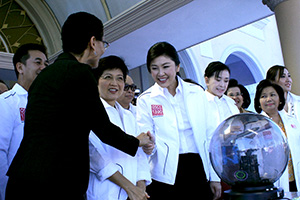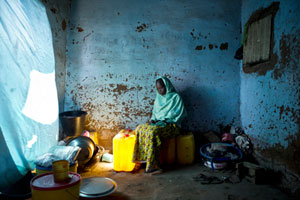Women and health
Violence against women and girls harms their health, including their sexual, reproductive and mental health. Women and girls surviving violence, especially sexual violence, need access to a range of sexual and reproductive health services, post-exposure care, psychosocial counselling and other services. Multi-sectorial and coordinated services are required to address the immediate and long-term needs of all women and girls subjected to violence.
The health consequences of violence against girls can be borne by generations. Child brides are often unable to effectively negotiate safer sex, leaving themselves vulnerable to sexually transmitted infections, including HIV, along with early pregnancy. Studies show that because such girls are not physically mature enough to give birth, both mothers and their babies are put at risk.
UN Women advocates for States to provide and better coordinate health services for women survivors of violence, and help support non-governmental partners providing services for survivors. We work to end practices that bring danger to mother and child, including child marriage, female genital cutting, dietary restrictions, and all other forms of violence and discrimination against women and girls. We also empower and ensure that the voices of women living with HIV and AIDS are heard, while raising awareness of the factors propelling the epidemic, including violence against women.
Thailand launches One-Stop Crisis Centre to respond to violence against women
Thailand opened its One-Stop Crisis Centre in April 2013, as well as a hotline that provides social assistance to women experiencing violence. A network of 22,000 crisis centres around the country and 1,300 mobile units support children, women, elderly and persons with disabilities who confront problems such as human trafficking, gender-based violence, child labour and teenage pregnancy.
Helping rape survivors in Mali to speak up
In the Gao region of Mali, UN Women partnered with two local NGOs to establish a gender-based violence unit in the main hospital, to combat the social stigma faced by women survivors of rape. More than 1,000 women and girls have benefited from psychosocial support at some of the 10 planned treatment units. Fifty therapy groups have also been established to empower women and girls to speak about their experiences with one another.
What the Beijing Declaration says about Women and health
Go back to UN Women's In Focus compilation on Ending Violence against Women 2014

